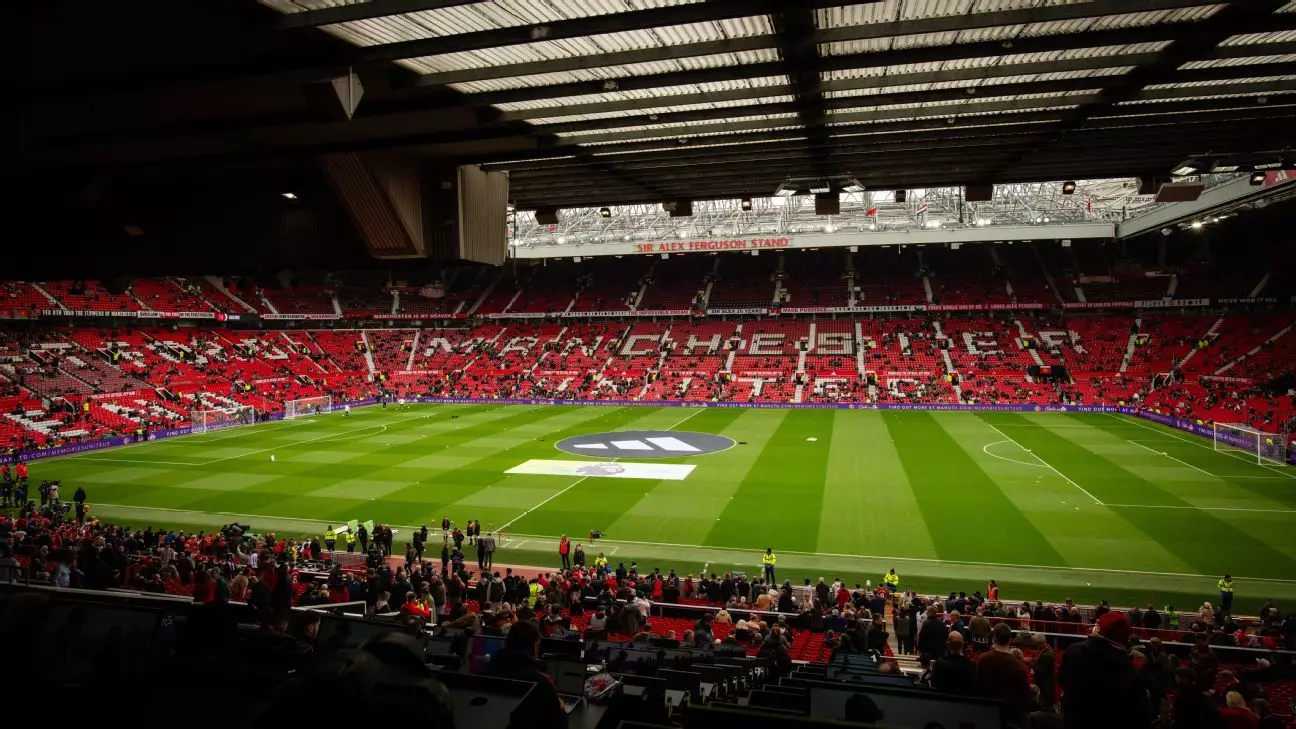Manchester United, one of the most storied football clubs in history, is at a key juncture regarding its future infrastructure. Recent surveys indicate an overwhelming inclination among its supporters to construct a new stadium instead of renovating the legendary Old Trafford. The financial implications of such a project could soar to approximately £2 billion ($2.6 billion), making this discussion not just about fans’ preferences, but also about financial viability and long-term planning.
According to the feedback obtained from over 50,000 respondents, 52% favor the idea of a new stadium. The desire for change is palpable, reflecting a modern sentiment where tradition meets the necessity for innovative facilities. Only 31% of fans expressed a preference for redeveloping Old Trafford, the club’s iconic home since 1910. Meanwhile, about 17% remain uncertain, possibly indicating a need for more information or a hesitance to abandon tradition altogether.
The Task Force’s Role: Key Stakeholders Involved
To navigate this complex decision, co-owner Sir Jim Ratcliffe has convened a task force that includes notable figures such as Gary Neville and Manchester Mayor Andy Burnham. This group is tasked with weighing fan sentiments and crafting actionable conclusions that will guide the club’s decision-making process. They are expected to report their findings by year’s end, emphasizing the importance of transparency and stakeholder engagement.
Sir Jim Ratcliffe’s inclination towards constructing a new stadium suggests a vision for the future—one that balances the club’s rich heritage with the demands of modern football infrastructure. Nevertheless, sources close to the club signal that no conclusive decision has yet been made, leaving fans in lingering anticipation.
The Importance of Listening to Fans
Rick McGagh, Director of Fan Engagement at Manchester United, highlighted the club’s commitment to listening to their supporters. His statement underscores an understanding that a stadium is not merely a venue but a home filled with emotional significance for fans. The club aims to decode the survey results by analyzing data through various lenses—comparing opinions between season ticket holders, official members, younger fans, and older supporters. This multifaceted approach appears crucial as it seeks to ensure that the new facility reflects the diverse preferences of its fanbase.
This survey serves as a pivotal moment to engage fans in a way that hasn’t always been the case in the past. The club has historically been criticized for its perceived disconnect from supporters; however, this initiative presents an opportunity to amend that relationship through direct involvement in decisions affecting their sanctuary.
The sentiment expressed by Manchester United fans embodies a desire for transformation. As the club stands at this crossroads, it must balance its voluminous heritage encapsulated by Old Trafford with the evolving expectations and experiences of a football audience in the modern age. Ultimately, the decisions made by the club will not only affect the architectural landscape of the home ground but also the emotional and cultural connection thousands of fans have with Manchester United. It will be interesting to see how the club navigates this process, keeping the fans at its heart while making a decision that could shape the future for generations to come.
